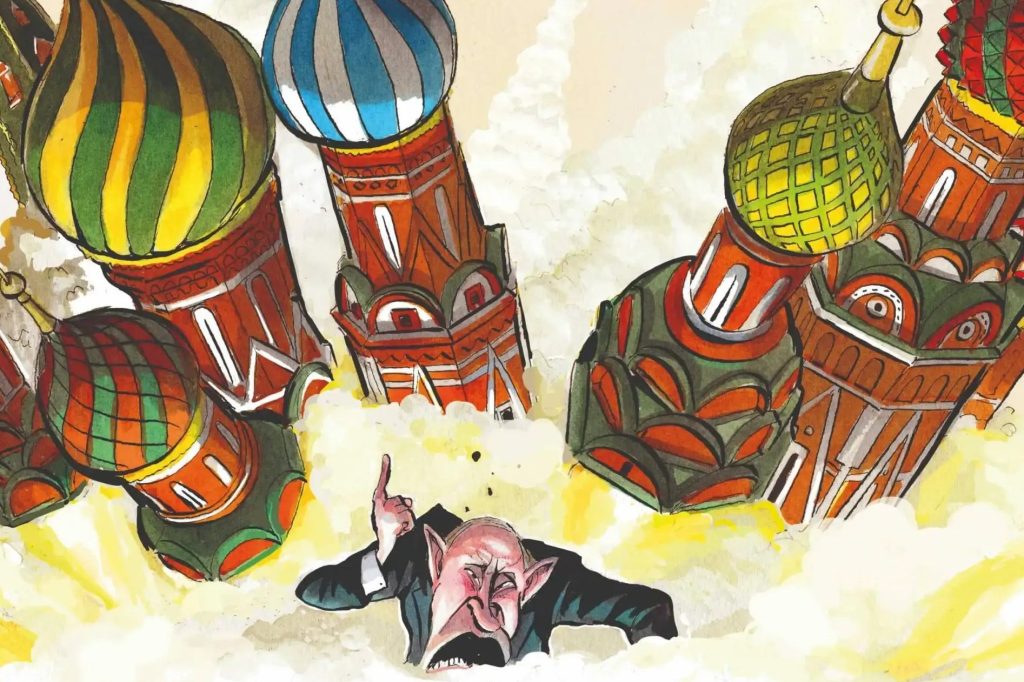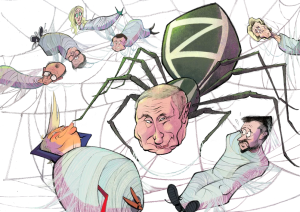Are we witnessing a new and more dangerous stage in the indirect war between Russia and the West? The news that Moscow’s agents may have been planning to assassinate European defense industrialists suggests they are escalating their covert operations abroad, which demands a quick and serious response.
German and US intelligence sources are claiming that Russia’s intelligence services were planning to kill Armin Papperger, head of the German arms firm Rheinmetall, as the first in a number of targeted hits against senior figures in the European defense-industrial complex.
Even the Soviet regime, at the height of its paranoia, did not declare open season on all its critics
Of course, there always needs to be caution when hearing any such reports, which so far are coming from carefully-framed leaks to the usual news services rather than official statements. Nonetheless, although the usual caveat applies — that extraordinary claims require extraordinary evidence — for now it would be foolish and dangerous to discount them.
In the past year, there has been an escalating campaign of Russian-orchestrated attacks in Europe. Still, there has clearly been an effort to maintain certain rules of engagement. Most of the targets have been facilities which can be attacked without directly threatenin lives, such as the Ukrainian-owned warehouses burnt down by men allegedly engaged by Russian intelligence, or the derailing of a Swedish freight train which has been linked to Moscow.
Attacks on people, fatal or otherwise, have been directed against those who, by Putin’s own estimation, are not “enemies” but “traitors” he feels can neither be forgiven nor ignored. Hence, for example, the murder of Maxim Kuzminov, the helicopter pilot who defected to Ukraine, gunned down in Spain in what looks like a hit outsourced to organized crime. Indeed, the brutality of Putin’s tactics in Ukraine reflects his perverse belief that the country somehow betrayed Russia.
Papperger was outspoken in support of sending weapons to Ukraine, and was clearly trying to push Berlin into being more active in the conflict, but he is not a Russian and does not have any particular connection to the country. He does not seem, in other words, to be a “traitor,” even according to Putin’s expansive definition of the term.
The implication — and at this stage, that is all it can be — is that the Kremlin is either establishing new and much more murderously loose rules of engagement for its intelligence services or at the very least turning a blind eye to initiatives coming from within its agencies. Either way, this is a substantial shift in policy and a deeply worrying one.
Does it mean that higher-profile advocates for Ukraine are now going to be considered legitimate targets? Even the Soviet regime, at the height of its paranoia, did not declare open season on all its critics, or on those who worked in critical industries.
There is, of course, much that we still do not know. Hopefully, the intelligence services will continue their recent trend of releasing much more of what they do know, not just assuming we will take their targeted leaks as gospel. Although there is always a delicate balance to be struck between security of sources and methods and the public right to know, releasing information does help prepare western populations for what may be ahead.
It could also play some role in a wider deterrence strategy, if the Kremlin realizes quite how far its plans and activities are known. But we also need to quickly and seriously think about how best to respond. If this is essentially the initiative of those within the Russian intelligence apparatus, operating without direct orders from above (although with their tacit approval), then it may be appropriate to target these individuals directly. Assassination is likely inappropriate for practical as much as legal reasons, but certainly something more serious than further sanctions is called for. Could the West hack their phones and computers, to name and shame them? The response calls for the right mix of spite and imagination.
But what if, as is more likely, this is actual Russian policy? How can it best be prevented? As with so much terrorism, do we have to rely primarily on security — on intelligence to uncover plots, analysis to predict them and protection to foil them?
It is possible to change Putin’s risk calculus, but it probably requires, again, more imagination and viciousness than our diplomacy tends to embody. Certainly, we must set aside our past reliance on “strategic ambiguity” — in effect warning of consequences without spelling them out and hoping Putin takes us seriously. Instead, we need to develop specific retaliatory moves — such as relaxing existing constraints on Ukraine using western weapons or cyberattacks on Russian infrastructure — and signal them unambiguously to Moscow. And we need to act quickly: if indiscriminate assassination becomes normalized, it becomes much harder to deter.
This article was originally published on The Spectator’s UK website.


























Leave a Reply